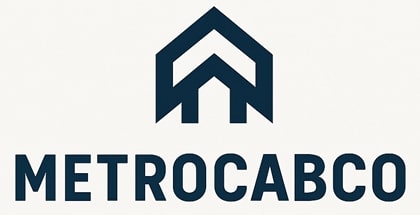Review platforms have become essential in the modern marketplace due to the rise of consumer empowerment. They provide valuable insights through authentic feedback, enabling consumers to make informed decisions. Positive reviews enhance brand trust and increase conversion rates, while negative feedback can lead to lost sales. Companies also benefit from continuous feedback loops for improvement. With evolving trends in technology and user-generated content, the importance of these platforms only continues to grow, leading to fascinating developments ahead.
Key Takeaways
- Review platforms empower consumers by providing access to authentic feedback, enhancing informed purchasing decisions.
- They foster transparency, allowing businesses to communicate openly and build trust with customers.
- Positive reviews significantly boost brand credibility, influencing consumer behavior and increasing conversion rates.
- Feedback loops from review platforms enable businesses to continuously improve their products and services based on customer insights.
- User-generated content on review platforms enhances engagement and emotional connections with brands, driving customer loyalty.
The Rise of Consumer Empowerment
The emergence of consumer empowerment has fundamentally transformed the landscape of modern commerce. With the advent of digital technology, consumers now possess unprecedented access to information and resources.
They can share experiences and opinions widely through review platforms, enabling them to influence purchasing decisions considerably. This shift has led businesses to prioritize transparency and customer engagement.
Also Read
Brands must now respond to feedback, both positive and negative, to maintain their reputations and foster loyalty. As consumers become more discerning and vocal, their ability to shape market trends and expectations grows stronger.
Consequently, companies that embrace this empowerment are better positioned to thrive in a competitive environment, adapting their strategies to meet the evolving demands of informed consumers.
Enhancing Decision-Making Processes
Review platforms greatly enhance decision-making processes for consumers traversing the marketplace. By aggregating feedback from a diverse user base, these platforms provide valuable insights into product quality and service reliability.
Consumers can compare experiences, identify trends, and assess the strengths and weaknesses of various offerings. This collective intelligence empowers individuals to make informed choices, reducing the risk of buyer’s remorse.
Additionally, reviews often highlight specific features or drawbacks that may not be evident from marketing materials, allowing users to tailor their selections to personal preferences.
In an increasingly complex market, review platforms serve as essential tools, streamlining the decision-making journey and fostering greater satisfaction with purchases. Consequently, they play a pivotal role in the modern consumer experience.
Building Trust in a Digital Marketplace
Building trust in a digital marketplace is essential for fostering positive consumer relationships.
Authenticity enhances credibility, encouraging users to engage with brands and products genuinely.
Additionally, transparency in operations and communications can greatly drive user engagement and loyalty.
Authenticity Boosts Credibility
How can businesses thrive in an increasingly competitive digital marketplace? Authenticity plays an essential role in enhancing credibility. Consumers today are more discerning, seeking genuine experiences and trustworthy information before making purchasing decisions.
By utilizing review platforms, businesses can showcase authentic customer feedback, which fosters trust and influences potential buyers.
- Customers value real experiences over marketing claims.
- Positive reviews can greatly impact brand reputation.
- Transparency in customer interactions builds lasting relationships.
Engaging with reviews, whether positive or negative, further demonstrates a brand’s commitment to authenticity.
As businesses prioritize credibility through genuine feedback, they position themselves as trustworthy options in a crowded market, ultimately driving sales and fostering customer loyalty.
Transparency Drives Engagement
Transparency is a key factor in fostering engagement and trust within the digital marketplace. When businesses openly share information about their products, services, and practices, they create an environment where consumers feel informed and empowered.
This openness encourages potential customers to engage more readily, as they perceive the brand as honest and reliable. Review platforms play an important role in this dynamic by providing a space for genuine feedback and experiences.
The Influence of Social Proof
Social proof greatly shapes consumer behavior in today’s digital landscape. As individuals increasingly rely on the experiences of others, their purchasing decisions are swayed by reviews and ratings. Positive feedback can enhance a brand’s credibility, while negative reviews can deter potential customers.
This phenomenon underscores the importance of having a solid presence on review platforms.
- Consumers trust online reviews as much as personal recommendations.
- A high number of positive reviews can markedly increase conversion rates.
- The visibility of reviews influences brand perception and consumer loyalty.
In an era where choices are abundant, social proof serves as a guiding factor, making it essential for businesses to cultivate a favorable online reputation through strategic engagement on review platforms.
Feedback Loops for Business Improvement
Feedback loops play a vital role in driving business improvement by providing continuous insights into performance.
By effectively identifying strengths and weaknesses, organizations can make informed decisions that enhance user experience.
This iterative process fosters a culture of adaptability and growth.
Continuous Improvement Insights
Continuous improvement thrives on the systematic collection and analysis of insights that inform business practices. Review platforms serve as invaluable tools in this process, enabling organizations to harness feedback effectively. By tapping into customer opinions and experiences, businesses can foster a culture of ongoing enhancement.
- Enhanced Decision-Making: Data-driven insights help leaders make informed choices that align with customer needs.
- Rapid Adaptation: Continuous feedback enables swift adjustments to products and services, minimizing risk and maximizing satisfaction.
- Employee Engagement: Involving team members in feedback discussions fosters an environment of collaboration and innovation, driving improvement initiatives.
Leveraging review platforms not only amplifies customer voices but also establishes a robust framework for continuous improvement, ensuring businesses remain competitive and responsive.
Identifying Strengths and Weaknesses
While businesses aim for excellence, identifying strengths and weaknesses through structured feedback loops is essential for sustained improvement.
Review platforms serve as valuable tools in this process, providing a systematic approach to gather insights from customers. By analyzing feedback, organizations can pinpoint areas of success, such as exceptional service or product quality, while also recognizing shortcomings that require attention.
This dual focus enables businesses to build on their strengths and address weaknesses effectively. Moreover, continuous monitoring of feedback fosters an adaptive culture, encouraging teams to innovate and evolve.
In this rapidly changing market landscape, leveraging review platforms for accurate assessments can greatly enhance strategic decision-making and overall performance. Consequently, businesses can thrive through informed adjustments driven by customer perspectives.
Enhancing User Experience
User experience plays a pivotal role in determining customer satisfaction and loyalty. By utilizing review platforms, businesses can create effective feedback loops that enhance user experience. These platforms provide valuable insights into customer preferences and pain points, enabling companies to make informed adjustments.
Key benefits include:
- Real-time feedback: Allows businesses to address issues promptly, improving customer interactions.
- Informed decision-making: Aggregated reviews guide product enhancements and service improvements.
- Customer engagement: Actively responding to reviews fosters a sense of community and trust between the business and its customers.
Incorporating these insights not only helps businesses to refine their offerings but also cultivates long-term relationships with customers, ultimately driving growth and profitability.
Navigating Information Overload
As the volume of information proliferates across review platforms, consumers often find themselves overwhelmed by the sheer abundance of choices and opinions.
This information overload can lead to decision fatigue, as individuals struggle to discern credible reviews from biased or fake ones. Many consumers may resort to relying on algorithms that prioritize popular reviews, potentially overlooking valuable insights.
Additionally, the diverse formats of reviews—ranging from text to video—can further complicate the evaluation process. To effectively navigate this landscape, consumers must develop strategies to filter and prioritize reviews based on relevance and reliability.
The Role of Transparency in Consumer Choices
Transparency plays an essential role in shaping consumer choices, particularly in an era dominated by online reviews and ratings. Consumers increasingly seek clear, honest information to guide their purchasing decisions. This demand for transparency fosters trust and enables informed choices, making it crucial for brands to be open about their products and services.
Transparency is vital for consumer trust, empowering informed decisions in a world of online reviews.
- Access to Unfiltered Opinions: Consumers benefit from seeing genuine feedback from other users.
- Enhanced Accountability: Brands are compelled to maintain high standards when their practices are visible.
- Informed Decision-Making: Transparency allows consumers to weigh the pros and cons effectively, leading to better purchasing outcomes.
Ultimately, transparency not only empowers consumers but also encourages brands to uphold ethical practices in their business operations.
The Impact of Reviews on Brand Reputation
Reviews play an essential role in shaping brand reputation by establishing trustworthiness and credibility among consumers.
Positive feedback can enhance a brand’s image, while negative reviews often lead to diminished consumer confidence and impact purchasing decisions.
As a result, businesses must actively manage their online reviews to maintain a favorable reputation.
Trustworthiness and Credibility
While the digital landscape offers consumers a wealth of information, the trustworthiness and credibility of online reviews play an essential role in shaping brand reputation. A brand perceived as credible is more likely to attract loyal customers, while negative reviews can tarnish its image considerably.
Consequently, companies must prioritize fostering an environment where genuine feedback can flourish.
- Authentic reviews enhance transparency and accountability.
- A strong reputation built on trustworthy reviews can lead to increased customer loyalty.
- Brands must actively engage with feedback to demonstrate their commitment to quality and customer satisfaction.
In this way, the integrity of reviews becomes a pivotal factor in establishing a brand’s standing in a competitive marketplace.
Influence on Purchasing Decisions
Consumer behavior is increasingly shaped by the presence of online reviews, which have become a crucial factor in purchasing decisions. Reviews greatly influence brand reputation, as potential buyers often rely on user experiences to gauge product quality and service reliability.
A positive review can elevate a brand’s credibility and encourage purchases, while negative feedback can deter consumers, leading to lost sales. Moreover, the rise of social media amplifies the reach of these opinions, creating a ripple effect that can either bolster or tarnish a brand’s image.
In this digital age, brands must actively manage their online presence and encourage satisfied customers to share their experiences, recognizing that the opinions of others profoundly impact consumer trust and decision-making processes.
Leveraging User-Generated Content
User-generated content frequently serves as a powerful tool for brands looking to enhance their credibility and engagement. By showcasing authentic experiences shared by customers, businesses can foster trust and encourage new customers to explore their offerings. This content not only humanizes the brand but also creates a community around it.
- Increases consumer trust through authentic testimonials.
- Encourages potential customers to connect emotionally with the brand.
- Provides valuable insights into customer preferences and behaviors.
Leveraging user-generated content can greatly amplify a brand’s reach and resonance in the marketplace. By integrating this content into marketing strategies, brands can capitalize on the organic advocacy of their satisfied customers, ultimately driving sales and loyalty.
Future Trends in Review Platforms
The landscape of review platforms is evolving rapidly, driven by technological advancements and changing consumer expectations.
The evolution of review platforms is fueled by technology and the shifting expectations of consumers.
As artificial intelligence and machine learning become more integrated, review platforms will increasingly offer personalized recommendations, enhancing user experience.
In addition, the rise of video content is likely to transform how reviews are presented, allowing consumers to engage with products more dynamically.
Trust and authenticity will remain paramount; as a result, platforms will implement more robust verification processes to combat fake reviews.
Moreover, the integration of social commerce will blur the lines between social media and review platforms, enabling seamless purchasing experiences.
In this shifting environment, adaptability and innovation will be fundamental for platforms aiming to meet the demands of discerning consumers.
FAQ
How Do Review Platforms Affect Small Businesses Differently Than Large Ones?
Review platforms impact small businesses by amplifying customer feedback, often shaping their reputation notably. In contrast, large businesses may experience diluted effects, as they typically have established brand recognition and resources to manage online perceptions more effectively.
What Types of Products Benefit Most From Consumer Reviews?
Consumer credibility cultivates confidence, particularly for products like electronics, cosmetics, and dining experiences. These categories thrive on detailed, authentic feedback, helping potential buyers navigate choices and fostering trust in brands through shared consumer insights.
Are Negative Reviews More Impactful Than Positive Ones?
Negative reviews often carry more weight than positive ones, as they can evoke stronger emotional responses and influence potential buyers’ perceptions. Consumers tend to prioritize negative experiences, leading to greater scrutiny of products or services.
How Can Businesses Respond Effectively to Negative Reviews?
In the dance of customer feedback, businesses must respond to negative reviews with grace. Acknowledging concerns, offering solutions, and maintaining professionalism can transform dissatisfaction into loyalty, demonstrating commitment to improvement and customer satisfaction.
What Steps Can Consumers Take to Write Helpful Reviews?
Consumers can enhance reviews by being specific about their experiences, providing context, using clear language, and balancing positive and negative aspects. Including relevant details helps others make informed decisions based on varied perspectives.
Conclusion
In an age where a single review can sway consumer choices, the importance of review platforms is undeniable. Like a lighthouse guiding ships through foggy waters, these platforms illuminate the path to informed decisions, fostering trust and transparency. For instance, a recent survey revealed that 84% of consumers trust online reviews as much as personal recommendations. As businesses navigate the digital marketplace, harnessing the power of these platforms will be essential for survival and growth in an increasingly competitive landscape.













